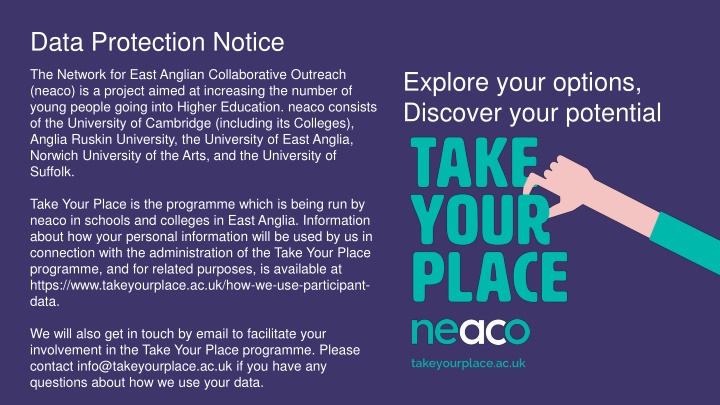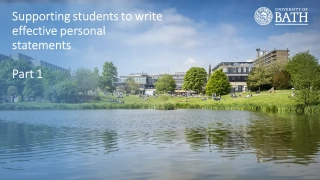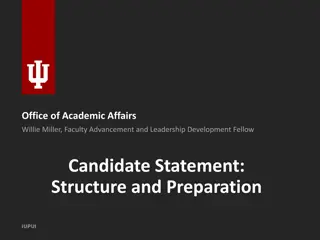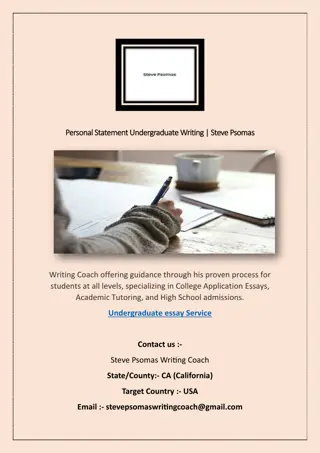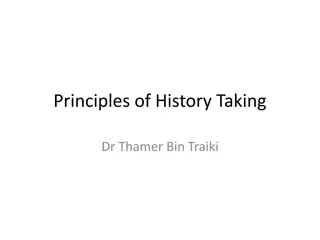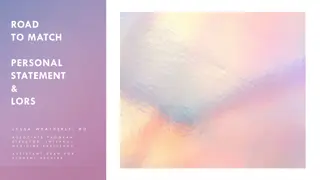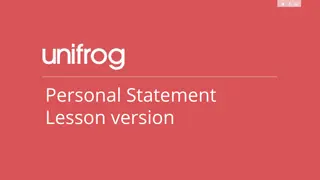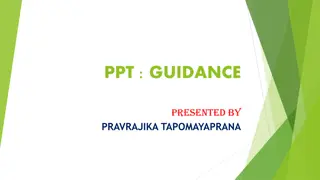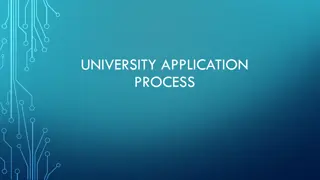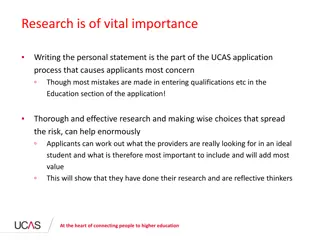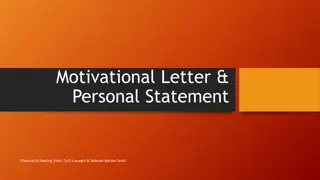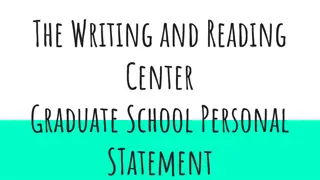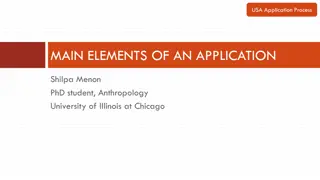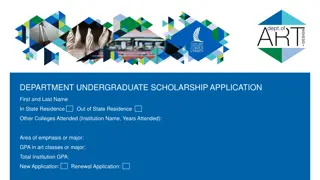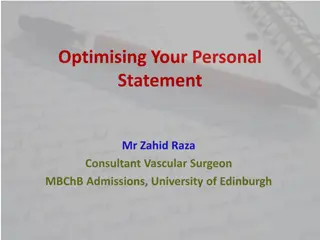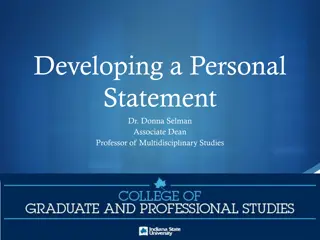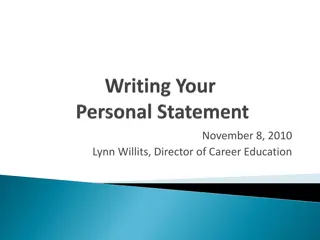Guidance for Writing a History Personal Statement & Application Process
Providing guidance and support for students interested in pursuing a History course at a university. Explore reading lists, preparation ideas, tips for writing a personal statement, and the application process. The resources aim to assist in developing academic paragraphs and enhancing understanding of historical texts and contexts.
Download Presentation

Please find below an Image/Link to download the presentation.
The content on the website is provided AS IS for your information and personal use only. It may not be sold, licensed, or shared on other websites without obtaining consent from the author.If you encounter any issues during the download, it is possible that the publisher has removed the file from their server.
You are allowed to download the files provided on this website for personal or commercial use, subject to the condition that they are used lawfully. All files are the property of their respective owners.
The content on the website is provided AS IS for your information and personal use only. It may not be sold, licensed, or shared on other websites without obtaining consent from the author.
E N D
Presentation Transcript
Data Protection Notice The Network for East Anglian Collaborative Outreach (neaco) is a project aimed at increasing the number of young people going into Higher Education. neaco consists of the University of Cambridge (including its Colleges), Anglia Ruskin University, the University of East Anglia, Norwich University of the Arts, and the University of Suffolk. Explore your options, Discover your potential Take Your Place is the programme which is being run by neaco in schools and colleges in East Anglia. Information about how your personal information will be used by us in connection with the administration of the Take Your Place programme, and for related purposes, is available at https://www.takeyourplace.ac.uk/how-we-use-participant- data. We will also get in touch by email to facilitate your involvement in the Take Your Place programme. Please contact info@takeyourplace.ac.uk if you have any questions about how we use your data. takeyourplace.ac.uk
Explore your options, Discover your potential Preparing for a History application Developing your learning in history (Super curriculum) takeyourplace.ac.uk
How can we help? This PowerPoint is here to provide you with different ideas to help and support you with writing a Personal Statement for a History course, plus the application process. We have put together reading lists, preparation ideas and top tips for the application process for a history course at a university.
Where do I start?! Let s start with some reading. We recommend using this time to do some further reading on your chosen subject, as it is important that your personal statement contains an academic paragraph.
An Academic Paragraph Having an academic paragraph in your personal statement is really important and we suggest using the following reading lists to help. You can use this paragraph to analyse a small piece of text from a relevant book/journal, article or historical text/historian s thesis.
Reading Suggestions General reading Articles in magazines are a great starting point for an overview of different periods of history. Try: - BBC History Magazine - History Today Your school library may have a subscription for these magazines try there first!
Reading Suggestions Introduction to the study of history / Historiography R. Evans, In Defence of History R. Evans, Counterfactuals in History J. H. Elliott, History in the Making J. Tosh, The Pursuit of History These texts will help you consider the purpose and theories used in the study of History
Reading Suggestions For gender history, try: H.R. Castor, She-Wolves (or watch the excellent BBC documentary) J. Chang, Wild Swans: Three Daughters of China Whitelock, Elizabeth s Bedfellows: An Intimate History of the Queen s Court
Reading Suggestions Read some award winning history books A Gambling Man: Charles II and the Restoration, Jenny Uglow, 2010. Liberty s Exiles: How the Loss of America Made the British Empire Maya Jasanoff, 2010. Reprobates: The Cavaliers of the English Civil War, John Stubbs, 2011. Mao s Great Famine,Frank Dikotter, 2012. The Spanish Holocaust, Paul Preston, 2012. Empires of the Dead: How One Man s Vision Led to the Creation of WW1 s War Graves David Crane, 2013. Return of the King, William Dalrymple, 2013. Under Another Sky: Journeys in Roman Britain, 2013. Common People: The History of an English Family, Alison Light, 2014.
Reading Suggestions Read some award winning history books (2) Fighters in the Shadows, Robert Gildea, 2015. Black Earth: The Holocaust as History and Warning, Timothy Snyder, 2015. They All Love Jack: Busting the Ripper, Bruce Robinson, 2015. East West Street, Philipe Sands, 2016. Belonging: The Story of the Jews 1492-1900, Simon Schama, 2017. Chernobyl: History of a Tragedy, Serhil Plokhy, 2018. The Spy and the Traitor, Ben Macintyre, 2018. Imperial Twilight: The Opium War and the End of China s Last Golden Age, Stephen Platt, 2018. The Five, Hallie Rubenhold, 2019. Maoism: A Global History, Julia Lovell, 2019. Alternatively, take a look through the list of the Wolfson prize winners. This is the prize for history book of the year in the UK.
Reading Suggestions Read some of the best history books published last year. https://www.historyextra.com/magazine/history-books- year-2019-christmas-gift-guide/
Check out these things to watch: Any History-related documentaries you can find that are written/presented by academic historians. We would particularly recommend: The Nazis: A Warning from History (BBC documentary) The Victorian Slum (BBC documentary; on iPlayer) Battlefield Britain (BBC documentary) Look on any academic historian s website for links to their documentaries, podcasts or books. Remember historians specialize in particular periods of history. Want a youtube channel with recommended programmes? Here is a great one! https://www.youtube.com/playlist?list=PL_ZhAiPE9mRS3fJOp6rGG6247GPEfiq2W
What else can I talk about? You can write about any historical exhibitions or places you have visited which have led to you further researching a period of history. PODCASTS ARE REALLY USEFUL TOO! A History of the World in 100 Objects History Extra: http://www.historyextra.com/podcasts BBC World War One Project: http://www.bbc.co.uk/programmes/p02sx794/episodes/downloads Witness (on the BBC World Service) http://www.bbc.co.uk/programmes/p004t1hd/episodes/downloads In Our Time (BBC radio show):http://www.bbc.co.uk/programmes/b006qykl/episodes/player
More podcasts History Hack (a new episode every day through Corona) You're Dead to Me (with Greg Jenner from Horrible Histories)...# Killing Time (with Rebecca Rideal) Dan Carlin's Hardcore History History Extra In Our Time. I've given you a link to the last one here, but they are all easily findable through whatever podcast app if on your phone https://www.bbc.co.uk/programmes/p01dh5yg/episodes/downloads
Other activities to help you prepare Attend an online history festival. Rebecca Rideal recently ran an online history festival after her real one got cancelled. The videos are all still available, and the speakers include top names like Sir Michael Palin and Hallie Rubenhold. https://www.youtube.com/channel/UCx28fwN_TeDYfklgshl 4m1g/videos Watch a historical film/ TV series and then research how accurate it is. There are so many awesome historical films out there. The key thing is though to approach them critically. Watch the film and then watch a lecture or read a book that relates directly to it...
Online Courses FutureLearn - Explore online courses to continue studying, build professional skills, and connect with experts. Useful examples include: How to Succeed at: Writing Applications https://www.futurelearn.com/ How to Succeed at: Interviews OpenLearn - Open University? These courses have been designed to increase confidence and develop the skills needed to enter Higher Education and succeed with learning. The courses are free and they do not have a start and end date. You can start right away or at a time that suits you. You can work through at your own pace You can spend as long as you like on an OpenLearn course, plus, if you sign up you can track your progress and work towards a statement of participation. There are around 1000 courses to choose from - https://www.open.edu/openlearn/free- courses/full-catalogue
Make the most of now We are living through History! The coronavirus is already having and will continue to have a massive impact on how history will be viewed. Keep a history focused diary of the events as they happen and try and make some predictions of the effects this will be having in 50 years years from now.
Mollys Personal statement advice: Tell them why you love history, you re going to be studying it for 3 years so make sure you do love it! Tell them what types of history is there a specific era or person or type (Social, political) that really interests you. What do you want to gain from the degree? Career paths etc. What makes you stand out? It doesn t have to be anything amazing but sell yourself and what you can offer the uni. Personal statements distinguish you from everyone else, I didn t get the grades I needed to go to Royal Holloway and I m sure without my personal statement they wouldn t have accepted me! Molly Saxby BA (Hons) History Royal Holloway University, London
Things I wish Id done before starting my personal statement/ starting my degree: I wish I d learned more about what types of history interested me. I would use this time in year 12 away from school to explore which parts of history are of most interest to me and focus on creating some research for my personal statement. Molly Saxby BA (Hons) History Royal Holloway University, London
My HE+ Thinking about applying to University and looking for ways to explore your subject beyond the curriculum? Then this website is for you. Each topic is produced by Cambridge postgraduate students and academics at the cutting edge of research in their field. The topics provide guided activities, questions to think about and suggestions for further reading. The main subject pages also give you a quick guide to what it would be like to study the subject at university level and suggest some further resources to check out. https://www.myheplus.com/
Online Courses FutureLearn - Explore online courses to continue studying, build professional skills and connect with experts. Useful examples include: How to Succeed at: Writing Applications How to Succeed at: Interviews OpenLearn - Open University? These courses have been designed to increase confidence and develop the skills needed to enter Higher Education and succeed with learning. The courses are free and they do not have a start and end date. You can start right away or at a time that suits you. You can work through at your own pace You can spend as long as you like on an OpenLearn course, plus, if you sign up you can track your progress and work towards a statement of participation. There are around 1000 courses to choose from - https://www.open.edu/openlearn/free courses/full catalogue
Find Us Online: www.TakeYourPlace.ac.uk Cambs@TakeYourPlace.ac.uk https://www.facebook.com/TakeYourPlaceHE @TakeYourPlaceHE @TakeCambs
